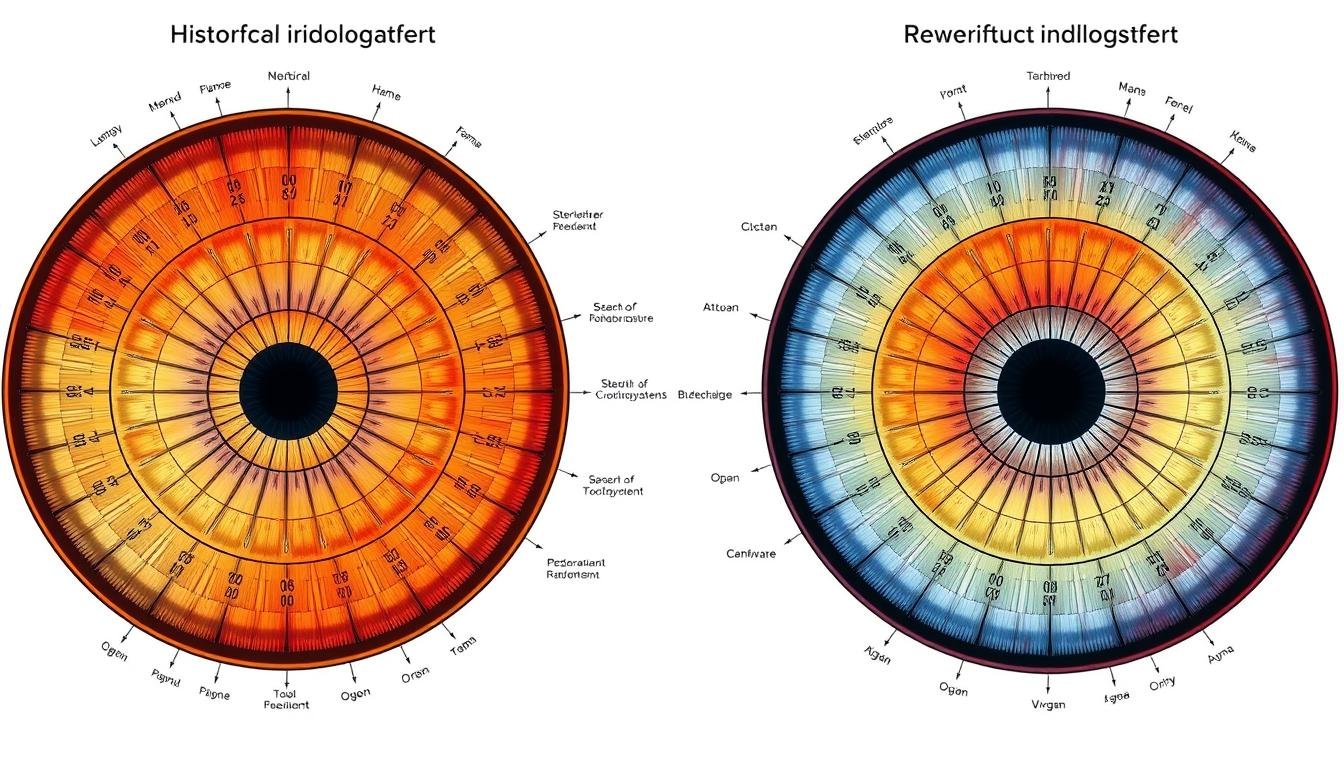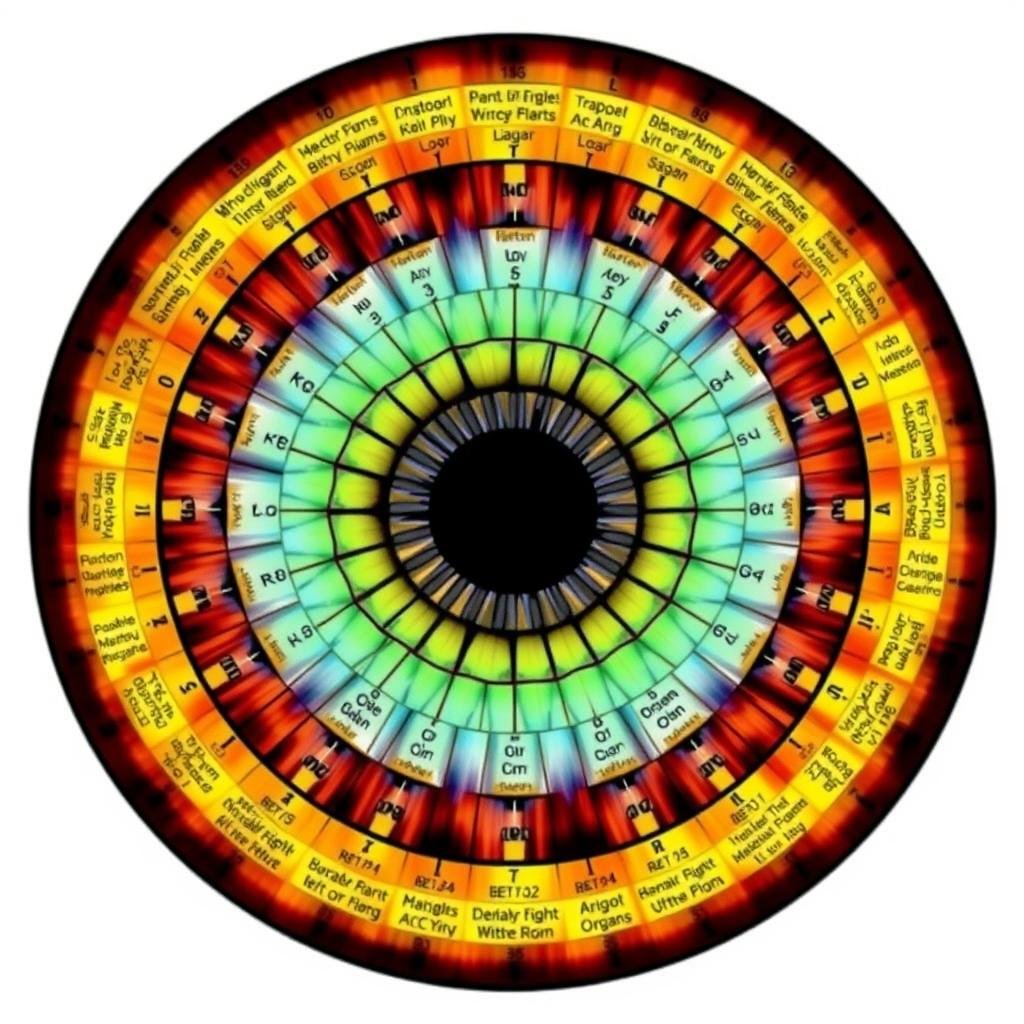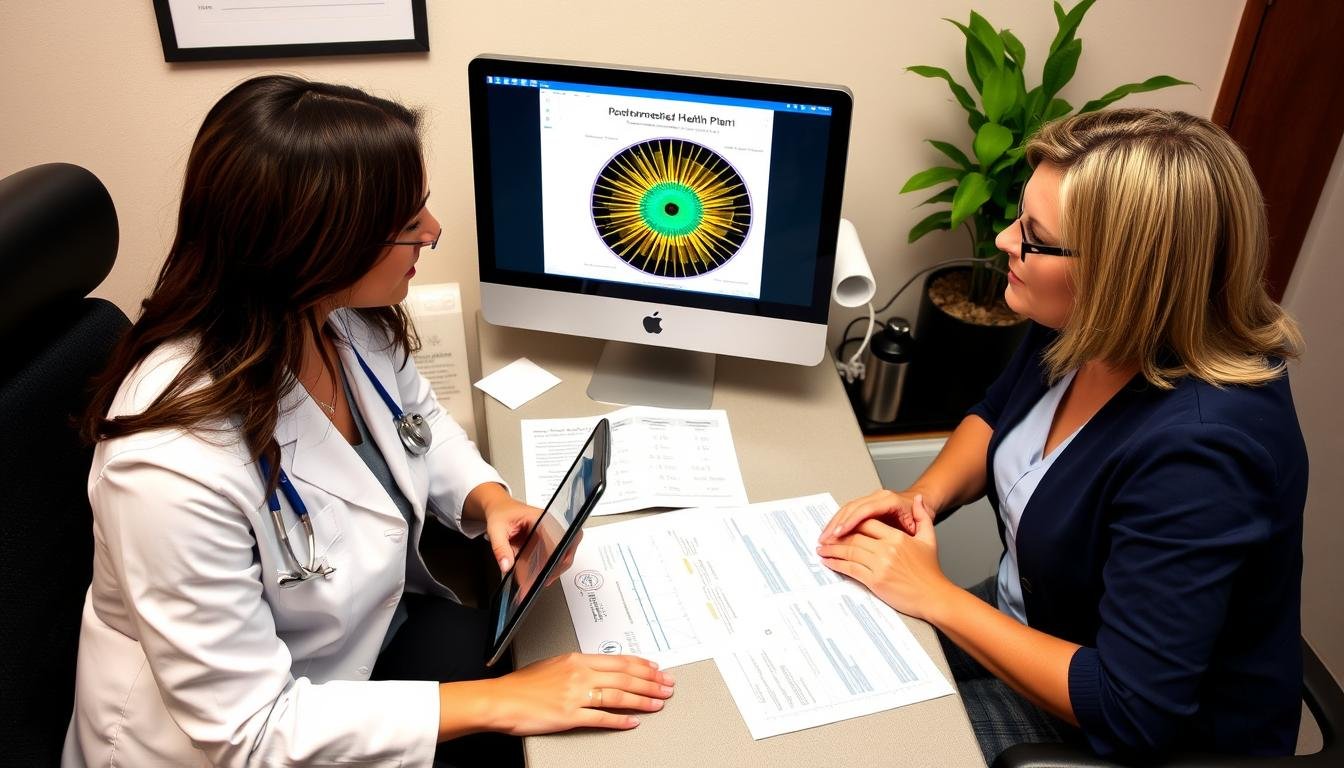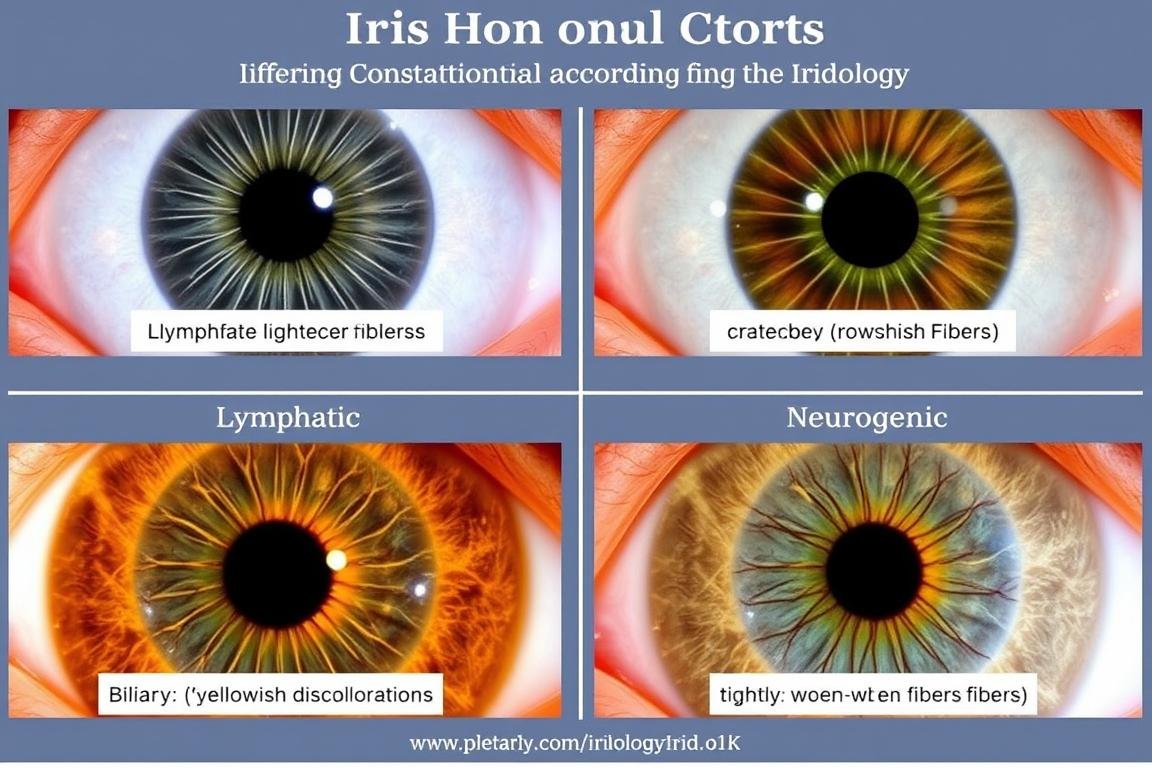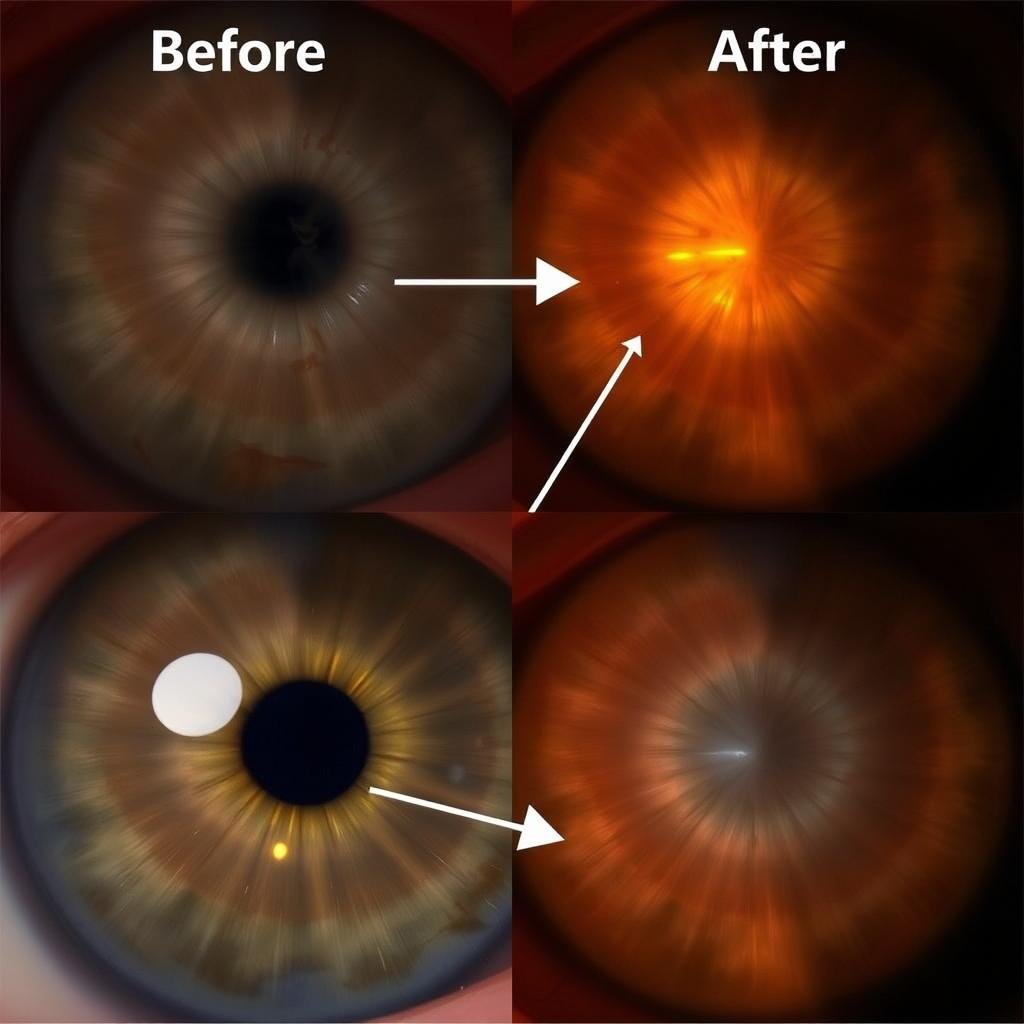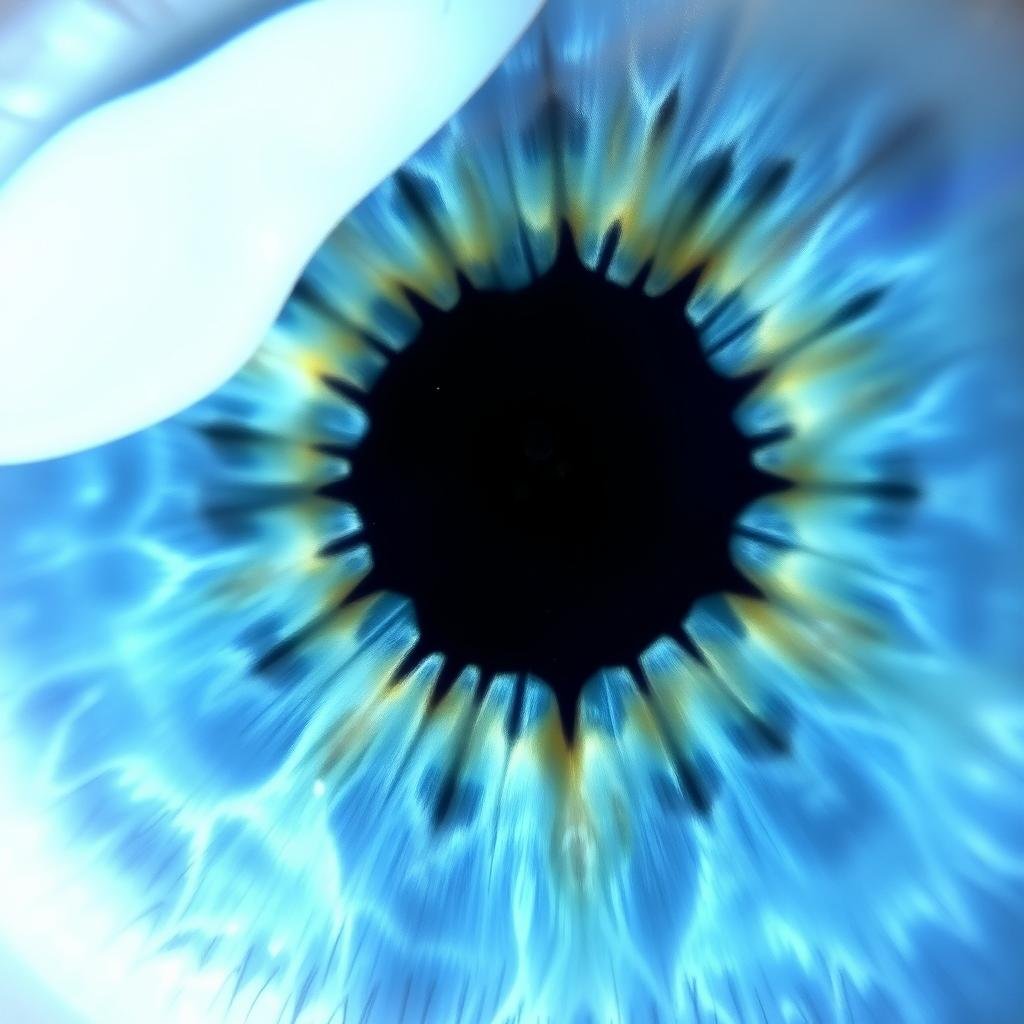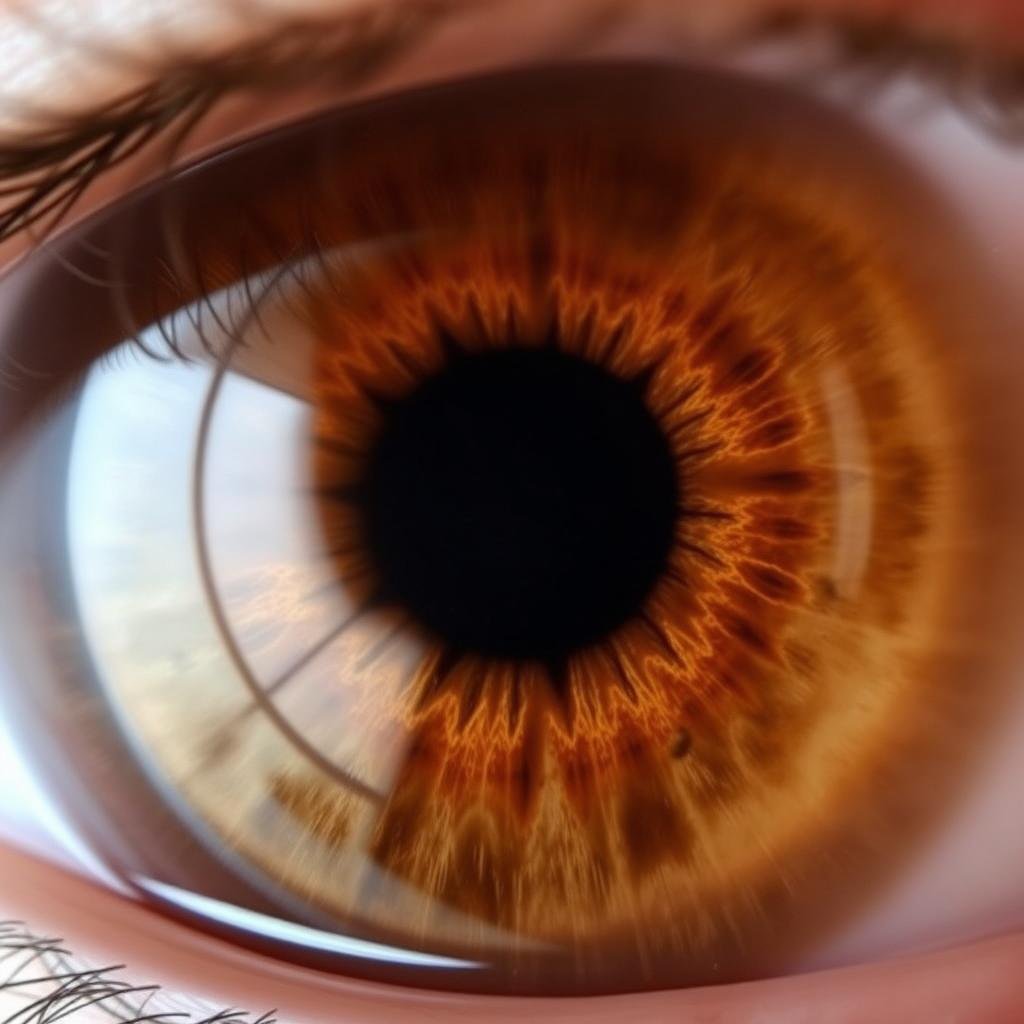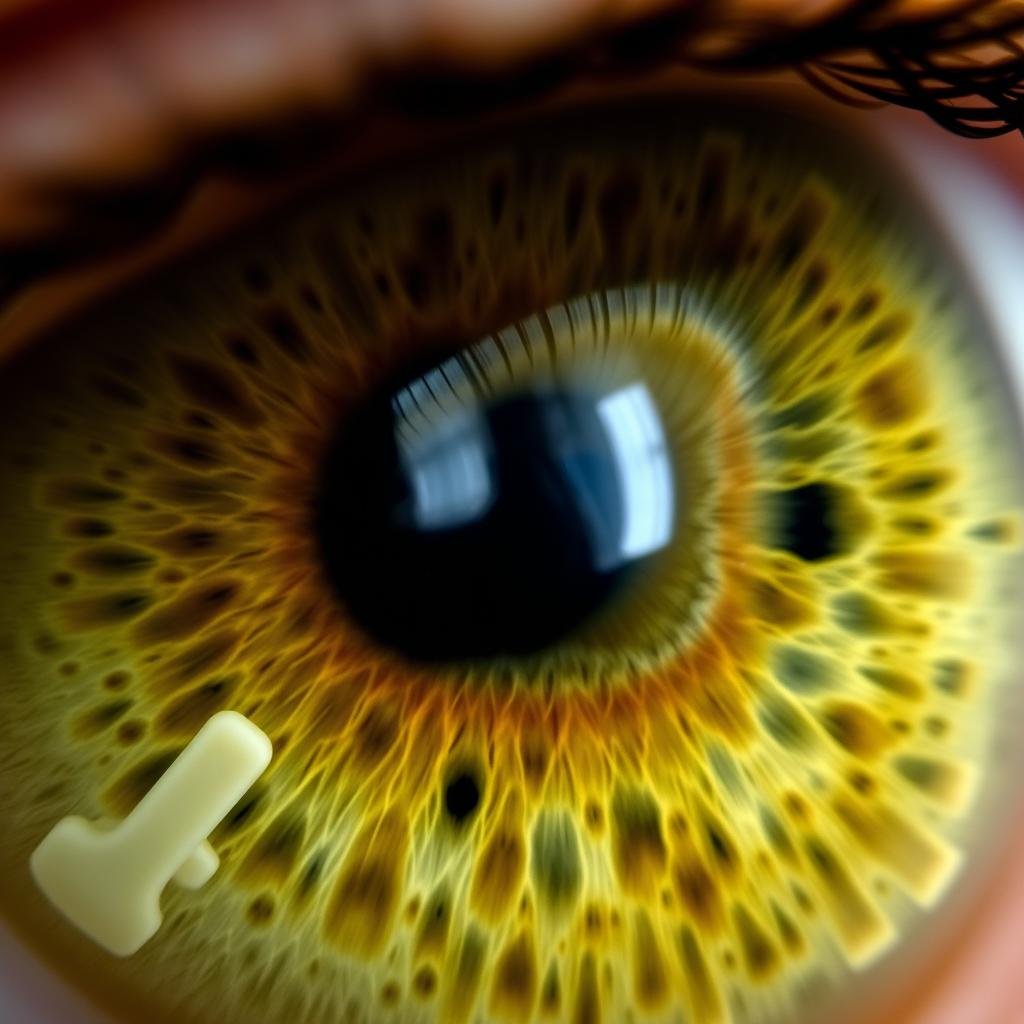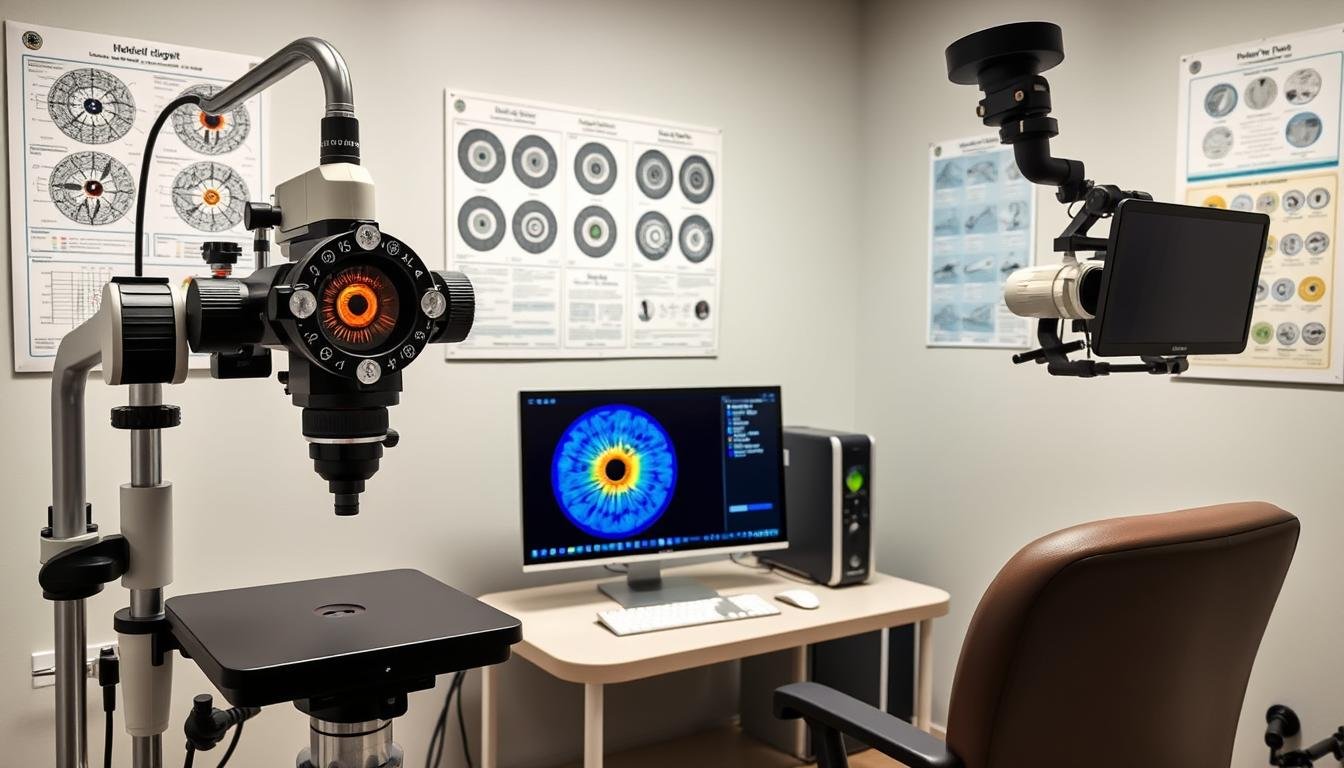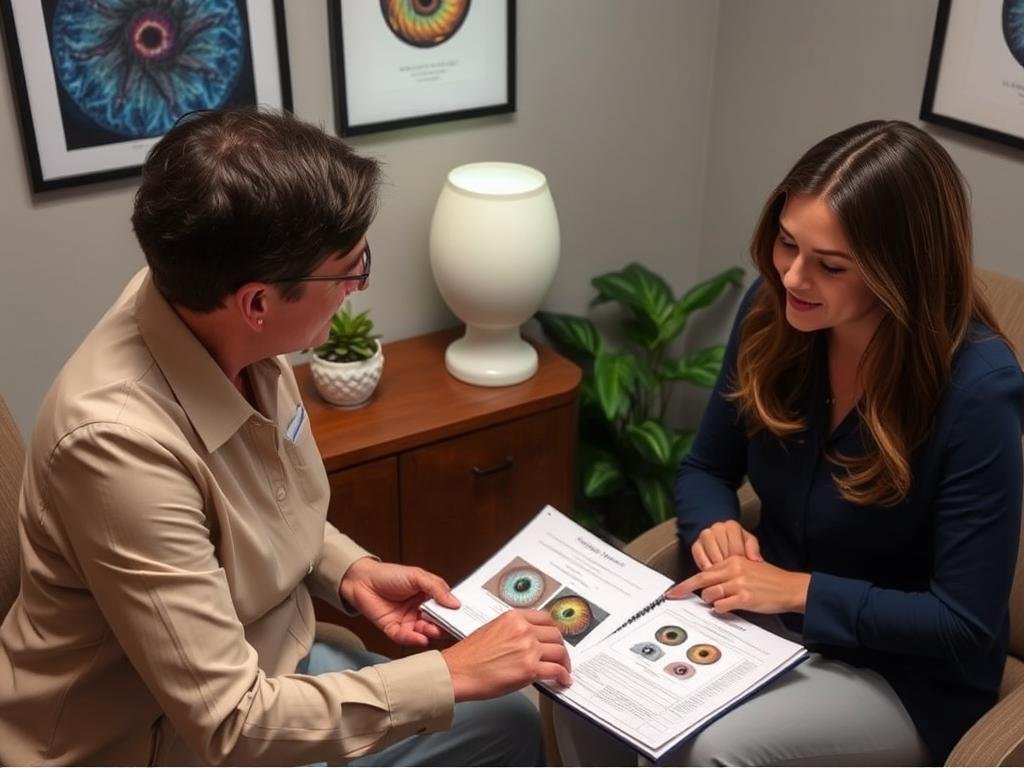L’iris de votre œil contient une carte remarquable des modèles et tendances de santé de votre corps. Grâce à une analyse minutieuse de tableaux d'iridologie, les professionnels de la santé peuvent identifier les vulnérabilités potentielles en matière de santé et les points forts propres à votre corps. Cette pratique ancienne mais en évolution offre des informations que beaucoup trouvent précieuses pour créer des stratégies de santé véritablement personnalisées. En explorant le monde fascinant de l’analyse de l’iris, vous découvrirez comment ces cartes détaillées de l’œil peuvent révéler des voies vers un bien-être optimisé, adapté spécifiquement aux besoins de votre corps.Compréhension Graphiques d'iridologie et leur importance historique



Historique et contemporain tableaux d'iridologie montrant comment les zones de l'iris sont corrélées aux systèmes du corps
Cartes d'iridologie servent de cartes détaillées qui divisent l’iris en plusieurs zones, chacune correspondant à des organes et systèmes spécifiques du corps. Ces tableaux complexes ont évolué au fil des siècles d’observation et de pratique, avec des racines remontant à d’anciennes traditions de guérison dans plusieurs cultures.
La pratique moderne de l'iridologie a pris un essor considérable au XIXe siècle lorsque le médecin hongrois Ignaz von Peczely a publié le premier document détaillé. tableau d'iridologie en 1881. Son travail a été développé par l'homéopathe suédois Nils Liljequist, qui a documenté des changements dans son propre iris après certains médicaments et maladies.
La structure de la norme Graphiques d'iridologie
Un typique tableau d'iridologie divise l'iris en environ 80 à 90 zones disposées en cercles concentriques. L'iris droit correspond généralement au côté droit du corps, tandis que l'iris gauche reflète le côté gauche. Ces zones sont ensuite classées en :
- Zone pupillaire (anneau le plus interne) – Souvent associé aux organes digestifs
- Zone ciliaire (anneau médian) – Lié à la circulation et aux fonctions métaboliques
- Couronne nerveuse autonome – Sépare les zones et reflète la santé du système nerveux
- Zone périphérique (anneau extérieur) – Connecté aux systèmes cutané, lymphatique et musculaire
Les couleurs, motifs et marquages à l'intérieur de ces zones peuvent indiquer divers problèmes de santé selon les praticiens en iridologie. Par exemple, des stries blanches peuvent suggérer une inflammation, tandis que des taches sombres peuvent indiquer des zones d’accumulation de toxines ou de dommages cellulaires.
Analyse de l'iris : comment les praticiens l'utilisent Graphiques d'iridologie
Les iridologues professionnels utilisent un équipement spécialisé et des approches méthodiques pour analyser l'iris par rapport à tableaux d'iridologie. Ce processus implique plusieurs étapes clés et techniques d’interprétation qui aident à traduire les modèles d’iris en informations sur la santé.

Examen professionnel d'iridologie utilisant un équipement spécialisé
Le processus d'examen
Équipement
Les iridologues modernes utilisent des outils spécialisés, notamment :
- Iriscopes avec grossissement haute résolution
- Caméras numériques à iris avec une capacité de plus de 12 mégapixels
- Éclairage spécialisé pour révéler les détails subtils de l'iris
- Logiciel de cartographie et d'analyse détaillées de l'iris
Techniques d'observation
Lors de l'examen, les praticiens évaluent :
- Variations et intensité de la couleur de l'iris
- Intégrité structurelle des fibres de l'iris
- Présence de marques, de taches ou de décolorations
- Forme, taille et réactivité de l'élève
Corrélation graphique
Les résultats sont mappés à tableaux d'iridologie pour identifier :
- Faiblesses potentielles du système organique
- Signes d'inflammation ou de toxicité
- Forces et tendances constitutionnelles
- Prédispositions génétiques à certaines conditions
Interprétation des signes courants de l'iris à l'aide Graphiques d'iridologie
| Signe de l'iris | Apparence | Indication potentielle selon l'iridologie |
| Rayon solaire | Lignes en forme de rayons rayonnant vers l'extérieur | Stress ou toxicité potentiel du système digestif |
| Chapelet lymphatique | Formation circulaire blanche autour de l'iris externe | Congestion du système lymphatique |
| Jante de scurf | Anneau sombre au bord extérieur de l'iris | Défis d’élimination de la peau |
| Anneaux nerveux | Anneaux circulaires ressemblant à des ondulations | Tension nerveuse ou modèles de réponse au stress |
| Lacunes | Zones sombres fermées | Faiblesse inhérente potentielle dans l’organe correspondant |
Il est important de noter que même si de nombreux praticiens apprécient ces interprétations, la communauté scientifique maintient que l’iridologie nécessite une validation clinique plus rigoureuse. Les iridologues professionnels soulignent généralement que leur analyse doit compléter, et non remplacer, les diagnostics médicaux conventionnels.
Créer des plans de santé personnalisés basés sur Tableau d'iridologie Analyse

Traduire les résultats de l’iridologie en stratégies de santé concrètes
La vraie valeur de tableau d'iridologie L’analyse émerge lorsque les praticiens traduisent leurs observations en recommandations de santé pratiques et personnalisées. Ce processus implique plusieurs étapes clés qui transforment les données sur l'iris en stratégies de bien-être exploitables.
De l’évaluation de l’iris aux recommandations personnalisées
Identifier les types constitutionnels
Les praticiens en iridologie commencent souvent par déterminer le type constitutionnel d’une personne en fonction de la structure et de la couleur de l’iris. Ces classifications peuvent inclure :
- Constitution lymphatique – Souvent caractérisé par des fibres blanches et peut indiquer une concentration sur le système lymphatique
- Constitution hématogène – Présente généralement des fibres brun rougeâtre suggérant une accentuation circulatoire
- Constitution biliaire – Présente des décolorations jaunâtres indiquant des priorités hépatiques et digestives
- Constitution neurogène – Affiche des fibres étroitement tissées indiquant la sensibilité du système nerveux
Chaque type constitutionnel peut bénéficier de différentes approches nutritionnelles, programmes d’exercices et techniques de gestion du stress.

Les quatre principaux types constitutionnels en iridologie
Protocoles de santé personnalisés basés sur Tableau d'iridologie Résultats
Recommandations nutritionnelles
Les suggestions diététiques peuvent être adaptées pour soutenir des organes ou des systèmes spécifiques identifiés comme des domaines potentiels de préoccupation dans l'iris :
- Aliments spécifiques à souligner ou à minimiser
- Compléments nutritionnels ciblés
- Protocoles d'hydratation
- Stratégies de soutien digestif
Ajustements du style de vie
Recommandations d’activités et de comportements alignées sur les forces et les faiblesses constitutionnelles :
- Types d’exercices et niveaux d’intensité
- Techniques d'optimisation du sommeil
- Pratiques de gestion du stress
- Modifications environnementales
Suivi des progrès
Méthodes de suivi des améliorations des marqueurs de santé au fil du temps :
- Examens de suivi de l'iris
- Journaux de symptômes
- Bilans énergie et vitalité
- Intégration avec les mesures de santé conventionnelles
Les plans de santé les plus efficaces issus de tableau d'iridologie Les analyses sont celles qui considèrent la personne dans son ensemble – pas seulement les signes isolés de l’iris, mais l’ensemble complet des forces, des tendances et des déséquilibres potentiels révélés par une évaluation complète.
– Praticiens en iridologie expérimentés
Études de cas : Transformations réussies de la santé grâce à Graphiques d'iridologie
Tout en préservant la confidentialité des clients, nous pouvons examiner comment tableau d'iridologie L’analyse a contribué à des améliorations significatives de la santé de diverses personnes. Ces cas illustrent l'application pratique de l'iridologie dans l'élaboration de stratégies de santé personnalisées.

Modifications de l'iris observées après la mise en œuvre de protocoles personnalisés
Étude de cas : Optimisation de la santé digestive
Profil du client: Femme de 42 ans souffrant d'inconfort digestif chronique et de fatigue
Tableau d'iridologie Résultats: L'analyse a révélé des marques significatives dans la zone intestinale de l'iris, avec des motifs de rayons solaires suggérant des problèmes potentiels de malabsorption et un impact du stress sur la fonction digestive.
Protocole personnalisé : Sur la base de ces constats, un plan personnalisé a été élaboré comprenant :
- Régime d'élimination pour identifier les sensibilités alimentaires spécifiques
- Supplémentation en enzymes digestives aux repas
- Thérapie probiotique ciblée
- Techniques de réduction du stress axées sur l'activation parasympathique
Résultats : Après quatre mois, le client a signalé une réduction de 80 % des symptômes digestifs et une amélioration significative de son énergie. L'analyse de suivi de l'iris a montré des changements subtils dans les marquages de la zone intestinale, suggérant une amélioration de l'intégrité des tissus.
Autres réussites
Soutien du système immunitaire
Un homme de 35 ans souffrant d'infections respiratoires récurrentes présentait des signes de congestion lymphatique au niveau de l'iris. Un protocole personnalisé axé sur le drainage lymphatique, des immunomodulateurs botaniques spécifiques et des modifications environnementales a permis de réduire de 70 % la fréquence des maladies sur un an.
Équilibre hormonal
Une femme de 48 ans présentant des symptômes de périménopause présentait des marques spécifiques dans les zones endocriniennes de son iris. Une approche sur mesure comprenant un soutien nutritionnel ciblé, des herbes adaptogènes et une optimisation du biorythme a entraîné une amélioration significative des symptômes en trois mois.
Résilience au stress
Un cadre de 51 ans souffrant de problèmes de santé liés au stress présentait des anneaux nerveux prononcés dans son iris. La mise en œuvre d'un protocole complet de gestion du stress avec un soutien nutritionnel spécifique pour son système nerveux a entraîné une amélioration du sommeil, une réduction de l'anxiété et une amélioration des performances au travail.
Note: Bien que ces études de cas démontrent des résultats positifs, les résultats individuels peuvent varier. Tableau d'iridologie L’analyse est plus efficace lorsqu’elle est utilisée dans le cadre d’une approche globale de la santé qui peut inclure des soins médicaux conventionnels, le cas échéant.
Intégration Graphiques d'iridologie avec les approches de santé conventionnelles
L'utilisation la plus efficace de tableaux d'iridologie passe souvent par une intégration réfléchie avec les approches médicales conventionnelles. Cette perspective complémentaire peut fournir des informations supplémentaires tout en garantissant une prise en charge globale.

Soins de santé collaboratifs intégrant les approches conventionnelles et iridologiques
Perspectives complémentaires en évaluation de la santé
Là où la médecine conventionnelle excelle
- Diagnostic et prise en charge des maladies aiguës
- Identification de la pathologie grâce à des tests en laboratoire
- Intervention d'urgence et soins intensifs
- Interventions pharmaceutiques si nécessaire
- Interventions chirurgicales lorsqu'elles sont indiquées
Où Graphiques d'iridologie Peut offrir des informations supplémentaires
- Tendances et prédispositions constitutionnelles
- Identification précoce des déséquilibres potentiels
- Modèles holistiques reliant différents systèmes corporels
- Stratégies préventives personnalisées
- Surveiller les changements subtils de l’état de santé
Créer une approche équilibrée
L'approche la plus bénéfique pour de nombreuses personnes est celle qui respecte à la fois la sagesse médicale conventionnelle et les connaissances qui peuvent être acquises grâce à tableau d'iridologie analyse. Cette perspective intégrée permet :
Évaluation complète
Combinant des tests médicaux objectifs avec les modèles observés dans tableaux d'iridologie peut fournir une image plus complète de l’état de santé et des domaines potentiels nécessitant une attention particulière.
Prévention personnalisée
L'utilisation de l'analyse de l'iris pour identifier les tendances constitutionnelles permet d'élaborer des stratégies préventives hautement individualisées qui peuvent compléter les recommandations médicales standard.
Suivi des progrès
Le suivi des marqueurs de santé conventionnels et des changements subtils dans les configurations de l'iris peut fournir de multiples perspectives sur l'amélioration de la santé au fil du temps.
En cherchant tableau d'iridologie analyse, il est conseillé de maintenir une communication ouverte avec vos prestataires de soins de santé primaires. Le partage d’informations entre praticiens peut vous aider à garantir que votre plan de santé est complet et bien coordonné.
Professionnel Tableau d'iridologie Services d'analyse
Pour ceux qui souhaitent découvrir comment tableaux d'iridologie pourraient contribuer à leur parcours de santé personnalisé, les services d’analyse professionnels proposent une évaluation structurée et complète avec des praticiens expérimentés.

Équipement d’analyse iridologique de pointe et matériaux de référence
À quoi s'attendre pendant la formation professionnelle Tableau d'iridologie Analyse
Consultation initiale
- Examen complet des antécédents médicaux
- Discussion sur les problèmes de santé actuels
- Explication du processus d'iridologie
- Fixer des attentes et des objectifs
Examen de l'iris
- Photographie d'iris haute résolution
- Cartographie détaillée à l'aide de professionnels tableaux d'iridologie
- Analyse des structures, des couleurs et des marquages de l'iris
- Documentation des résultats
Rapport personnalisé
- Explication détaillée des observations
- Recommandations santé personnalisées
- Étapes d’action prioritaires
- Plan de surveillance de suivi
Notre approche professionnelle de Tableau d'iridologie Analyse
Nous combinons la sagesse traditionnelle de l'iridologie avec la technologie moderne et une approche scientifique pour fournir les informations les plus précieuses possibles. Nos services comprennent :
- Analyse complète de l'iris – Examen détaillé à l'aide d'équipements de pointe et de professionnels tableaux d'iridologie
- Protocoles de santé personnalisés – Recommandations personnalisées basées sur vos modèles d'iris uniques et vos antécédents médicaux
- Ressources pédagogiques – Matériel pour vous aider à comprendre les schémas de votre iris et leur signification potentielle
- Assistance de suivi – Des conseils continus pendant la mise en œuvre de votre plan de santé personnalisé
Découvrez vos informations personnelles sur la santé grâce à Tableau d'iridologie Analyse
Notre équipe d'experts fournit une analyse complète de l'iris à l'aide d'un équipement professionnel et détaillée tableaux d'iridologie. Contactez-nous dès aujourd'hui pour planifier votre consultation personnalisée et faire le premier pas vers une approche de santé personnalisée basée sur vos schémas d'iris uniques.
Ou contactez-nous par email à : Lucy@iriscope.org
Demandez votre analyse d'iridologie personnalisée
Conclusion : la valeur de Graphiques d'iridologie en santé personnalisée
L'étude des motifs de l'iris à travers tableaux d'iridologie offre une perspective unique sur la santé que beaucoup trouvent précieuse dans leur parcours de bien-être. Alors que la communauté scientifique continue d’évaluer l’efficacité de l’iridologie, de nombreux praticiens et clients font état d’informations significatives et de résultats positifs issus de cette approche personnalisée.
Le vrai pouvoir de tableau d'iridologie L’analyse réside dans son caractère hautement individualisé. Plutôt que d’appliquer des recommandations génériques en matière de santé, cette approche prend en compte vos tendances constitutionnelles uniques, vos forces potentielles et les domaines qui pourraient bénéficier d’un soutien ciblé.
Que vous cherchiez à optimiser votre santé actuelle, à répondre à des préoccupations spécifiques ou à développer une stratégie préventive alignée sur les tendances naturelles de votre corps, des professionnels tableau d'iridologie l’analyse peut fournir des perspectives précieuses pour compléter votre parcours de santé.
Pour plus d’informations sur nos services professionnels d’iridologie ou pour planifier votre consultation personnalisée, contactez-nous au +86 13-51090-74-01 ou par email Lucy@iriscope.org. Notre équipe expérimentée est prête à vous aider à découvrir les informations uniques que votre iris peut révéler sur votre chemin de santé optimal.



